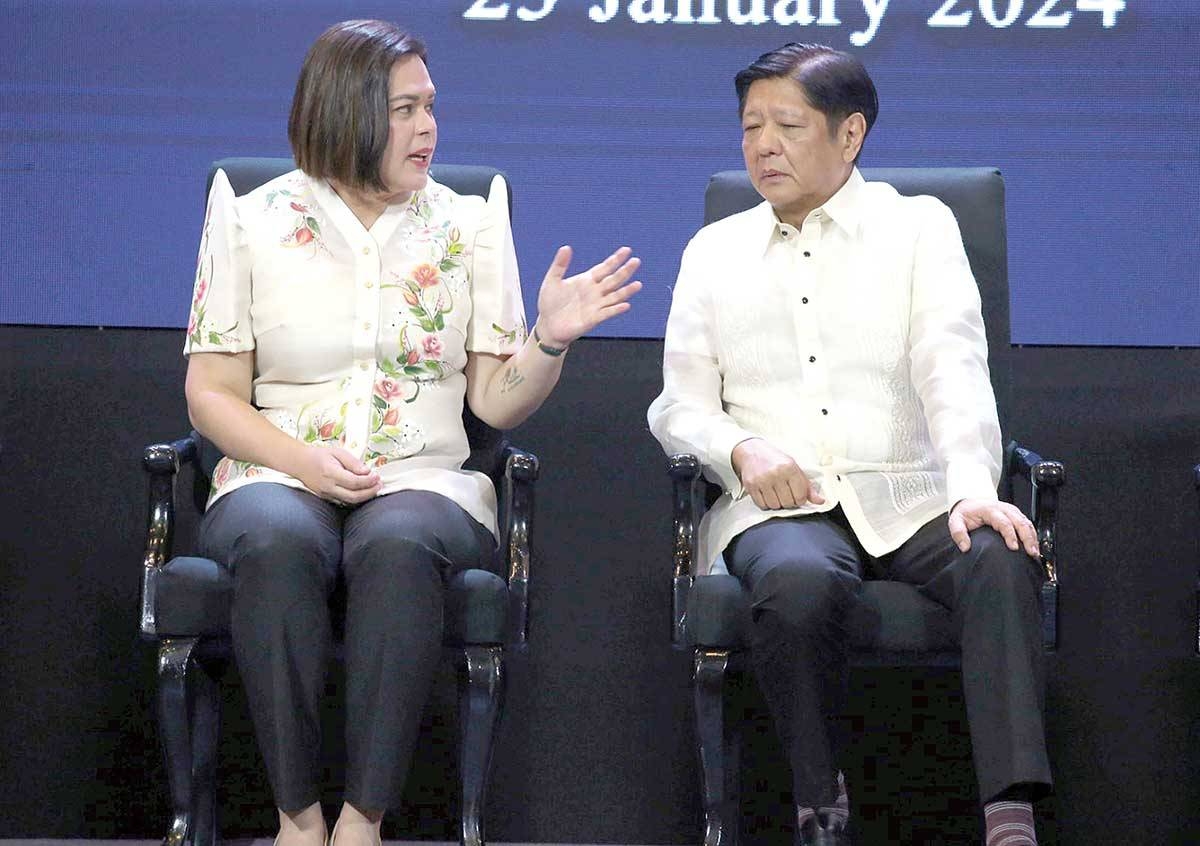In a recent speech at the Basic Education Report (BER) 2024, President Ferdinand Marcos Jr. emphasized the importance of placing Filipino children at the center of the country’s reform movement. He pledged to continue transforming the educational system to ensure that no child is left behind. Marcos invited the Filipino people to join the administration in this endeavor, as part of the “Bagong Pilipinas (New Philippines)” campaign.
Vice President and Education Secretary Sara Duterte, in her report, highlighted the achievements of the Department of Education (DepEd) over the past year. These accomplishments included the launch of the Matatag curriculum, improvements in teachers’ welfare, digitalization efforts, and the construction of classrooms and school buildings to meet the growing needs of students.
The Matatag curriculum, currently undergoing a pilot run from Kinder to Grade 10, aims to make education more relevant and produce job-ready, active, and responsible citizens. It also focuses on accelerating the delivery of basic education services, providing necessary facilities, promoting learner well-being and inclusiveness, and creating a positive learning environment. The DepEd is closely monitoring the pilot run to identify areas for improvement before its full implementation in the next school year.
The DepEd has also implemented initiatives such as the National Learning Camp, Catch-Up Fridays, and a review of the senior high school curriculum. These efforts aim to enhance the learning experience and address any gaps in students’ knowledge and skills.
Furthermore, the DepEd has made significant progress in infrastructure development. In the past year, 24 new schools were constructed, bringing the total to 63 under Vice President Duterte’s leadership. Additionally, over 3,637 classrooms have been created to accommodate the increasing number of students. The DepEd is collaborating with the Department of Public Works and Highways (DPWH) to improve the coordination of resources and expedite the construction of classrooms.
Digitalization is another key focus of the DepEd. The “DepEd Digi-Ed 2028” program aims to establish interconnectivity between schools and DepEd offices, provide schoolwide wireless access, and offer electronic textbooks for learners. The procurement of textbooks for the Matatag K-10 Curriculum includes a requirement for winning bidders to provide electronic copies, enabling learners to access them anytime and anywhere.
Teachers’ welfare and benefits have also been prioritized. The DepEd has purchased personal accident insurance from the Government Service Insurance System (GSIS) and registered teachers and employees with the Konsulta Package of the Philippine Health Insurance Corp. (PhilHealth). The Hardship Index cut-off for the Special Hardship Allowance has been lowered, making an additional 16,532 teachers in 1,812 schools eligible to receive this allowance.
To ensure fair compensation for teachers, the DepEd has sought the assistance of the World Bank in conducting a study on teachers’ salaries. This study will provide valuable insights into the necessary salary increases in the coming years, serving as a basis for discussions in Congress.
In addition to addressing teachers’ salaries, Vice President Duterte announced that administrative tasks burdening teachers will be eliminated through a department order to be issued soon. This measure aims to alleviate teachers’ workload and allow them to focus more on teaching and facilitating student learning.
The commitment of the Philippine government, led by President Marcos Jr. and Vice President Duterte, to transform the education system reflects their dedication to the future of Filipino children. By prioritizing relevant curriculum, infrastructure development, digitalization, and teachers’ welfare, the government aims to provide quality education that prepares students for success in the modern world. The “Bagong Pilipinas” campaign serves as a call to action for all Filipinos to contribute to the transformation of the education system and ensure that every child has access to a bright future.







